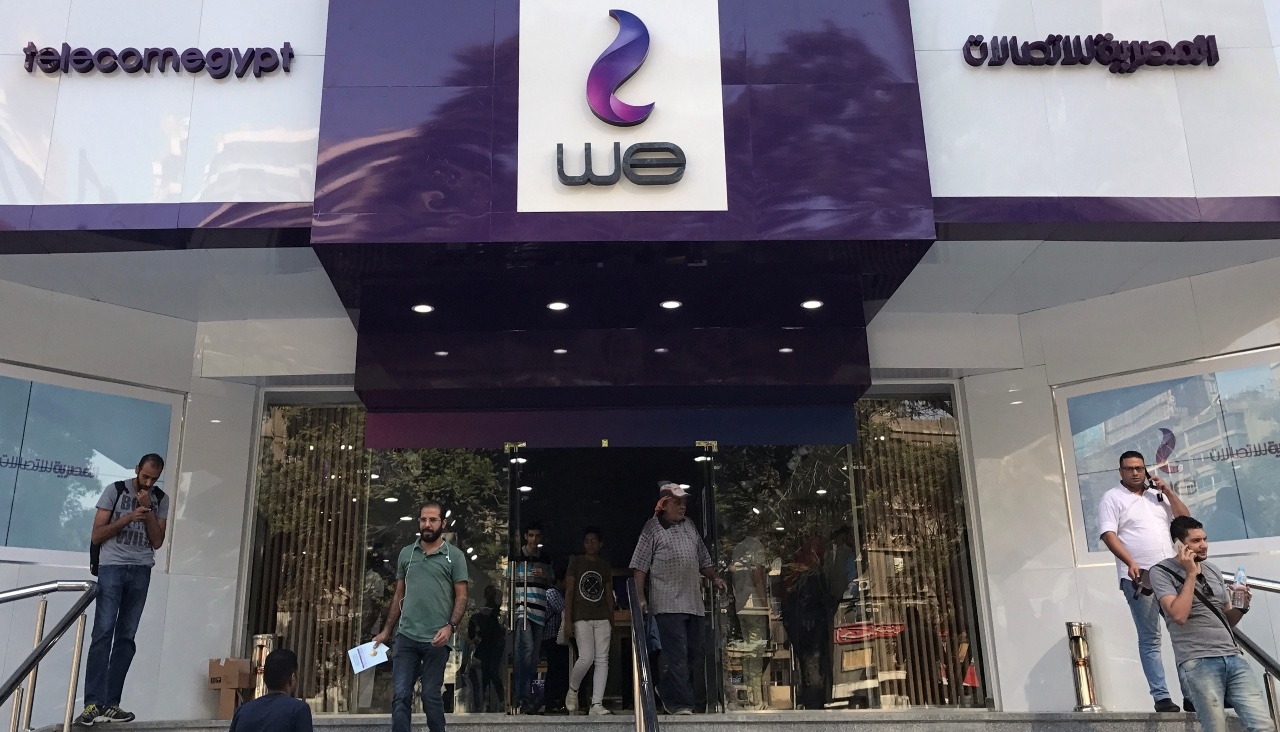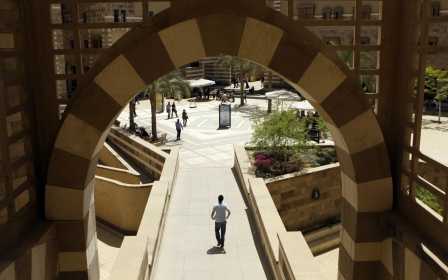Egypt sells 9.5 percent of state-controlled Telecom group

Egypt sold a 9.5 percent stake in state-controlled Telecom Egypt for $121.6 million, the finance ministry said in a statement on Sunday, a small gesture that the government is moving ahead with economic reforms amid investor concerns over Cairo's foot-dragging.
Egypt is facing a foreign currency crunch that has led to a shortage of basic goods and record inflation. Last year, Cairo was forced to turn to the IMF for its fourth loan from the lender in six years.
As part of its $3bn bailout, the government is supposed to open up the books of state-owned enterprises (SOEs), move forward with privatisation, reduce the military’s footprint in the economy, and allow its currency to trade freely.
Earlier this year, Egypt announced a plan to sell stakes in at least 32 state-owned companies by the end of March 2024. Although Telecom Egypt was not listed among them, news of the sale reflected Cairo’s need to raise funds.
In March, Reuters reported that Egypt’s government had abruptly suspended the sale of the company, which is 80 percent government-owned, due to "market conditions”.
New MEE newsletter: Jerusalem Dispatch
Sign up to get the latest insights and analysis on Israel-Palestine, alongside Turkey Unpacked and other MEE newsletters
On Sunday, Egypt’s finance ministry said that 162.2 million shares were sold at 23.11 Egyptian pounds ($0.75) per share. The government is offering an additional 0.5 percent of the shares to company employees until 25 May. The ministry didn’t specify how many shares were purchased by foreign buyers.
Egypt’s government has traditionally played an outsized role in the country’s economic life. The Egyptian government purchased Telecom Egypt, which today employs about 53,000 people, in the late 19th century.
President Abdel Fattah el-Sisi, a one-time general who rose to power after the overthrow of former President Mohamed Morsi, doubled down on a state economic model, catapulting the army into a dominant position.
Today, Egypt’s military controls everything from cement factories to grocery stores and malls. Analysts who spoke to Middle East Eye previously said they are sceptical that Sisi will loosen the military’s coveted position.
“Wholesale reform threatens the privileged position of the military in the economy - making such reforms unlikely," Hamish Kinnear, from risk advisory firm Verisk Maplecroft, told MEE.
But Sisi faces a dire economic situation with inflation hitting 30.6 percent in April and global investors clamouring for the government to stop propping up the country’s currency.
'We need to see reforms'
Gulf countries that historically provided an economic lifeline to Egypt have pledged billions of dollars in investments but have shown little appetite to carry through on those pledges.
In April, the Wall Street Journal reported that Saudi Arabia and other Gulf states warned Cairo that any financial bailout was contingent on the government devaluing its currency and appointing new officials to run the economy.
Sisi relied on financial assistance from countries like Saudi Arabia and the UAE after rising to power as he positioned himself as an opponent to the Muslim Brotherhood, which Gulf countries viewed as a threat to their rule.
The Egyptian leader signed onto Riyadh and Abu Dhabi’s embargo against Qatar, citing Doha’s support for the group. But the region’s big powers have since moved to patch up ties. And Qatar’s emir, Sheikh Tamim bin Hamad Al Thani, visited Egypt in June last year.
Like its Gulf neighbours, Doha pledged to invest billions of dollars in Egypt’s struggling economy. The IMF has called the Gulf states’ support “a critical part” of Egypt’s $3bn bailout programme.
The wave of regional rapprochement comes as Gulf states look to pivot from foreign confrontation to shoring up their domestic economies with a windfall in energy revenue, amid what many experts say could be one of the last great oil booms.
Saudi Arabia’s finance minister summed up Riyadh’s new approach to financial assistance earlier this year at the Davos economic forum in January.
“We used to give direct grants and deposits without strings attached, and we are changing that,” Mohammed al-Jadaan said. “We need to see reforms. We are taxing our people, we are expecting also others to do the same, to do their efforts. We want to help but we want you also to do your part."
Despite Egypt's economic malaise, Gulf states are eyeing new acquisitions in the Arab world's largest country. The Qatar Investment Authority (QIA) and Saudi Arabia’s Public Investment Fund are both eyeing a stake in Vodafone Egypt, which is 45 percent owned by Telecom Egypt.
Middle East Eye delivers independent and unrivalled coverage and analysis of the Middle East, North Africa and beyond. To learn more about republishing this content and the associated fees, please fill out this form. More about MEE can be found here.





